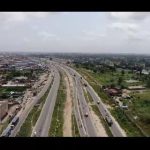Ekuson Nw’Ogbunka
Abuja
The Director General (DG), Standards Organization of Nigeria (SON), Dr. Ifeanyi Chukwunonso Okeke informs that investigations carried out by the agency under his supervision, has shown that the cause of incessant building collapses in Nigeria, was as a result of poor structural designs, quackery, unprofessionalism and inadequate or lack of soil testing. Others, according to him, include poor construction practices and procedures, unapproved construction, wrong demolition process, lack of maintenance, negligence, use of substandard materials (steel reinforcement bars), and poor drainage around the collapsed buildings.
This was contained in a press release from the agency’s Director of Public Relations, Mrs. Foluso A. Bolaji Thursday.
He however added that the samples of beams, columns and reinforcement steel bars collected from the various building collapses sites, such as the Gerard Ikoyi, Lagos, Garki, in the Federal Capital Territory (FCT), the St. Academy School in Jos, Plateau State, Obingwu, Ukwa Local Government in Abia State, among othets were all subjected to laboratory tests.
The CEO therefore said analysis from the samples showed that the major causes
of building collapses were mainly due to poor cement-to-sandmix ratioas and
deliberate failure to comply with established building codes..The DG stated that the Organization on its part has produced 168 Standards and Codes of Practice for the building and construction industry since one specification for accelerating admixtures, retarding 004 for contractors to implement during construction.
Reiterating the need for a comprehensive approach to building collapses in Nigeria to prevent repeated incidents from occurring in the future and to ensure the safety and integrity of structures across the nation, the DG frowned at the frequent spate of building collapses across the country, the wanton destruction of lives and properties on each occurrence, even as he stated that compliance to Specifications and Codes of Practice in the Standards by regulators and service providers in the sector will play an important role in reinstating the eroding confidence of Nigerians in the Nigerian
building industry.
Those standards, he outlined as, Nigerian Industrial Standard (NIS) 117: 2004 Specification for Steel Bars for the Reinforcement of Concrete; NIS 499:
2004 Standard for Iron and Steel; NIS 588: 2007 Testing Hardened Concrete Part one, method for determination of the compressive strength of concrete cores, NIS 585: 2007 Standard for Concrete Admixtures –Part 1 -Specification for Accelerating
Admixtures, Retarding Admixtures and Water Reducing Admixtures; NIS 156:1982 Standard Method for Testing Fresh Concrete and; NIS ISO 41001:2020 Facility Management System Standard amongst others.
Ifeanyi Chukwunonso Okeke, went further to disclose that the agency has established regulator powers established in the SON Act to regulate locally manufactured
products through its Mandatory Conformity Assessment Programe (MANCAP) and its pre shipment verification of conformity to standards for imported goods through the SON Conformity Assessment
Programme (SONCAP). Other Initiatives, he went, include the Product Authentication Mark
(PAM)which gives the Consumer the power to verify the authenticity of a product before purchase.
According to him, other initiatives taken was the setting up of the SON’s taskforce Special Intervention to Standardize Steel Reinforcement Bars where stakeholders in the
sector, were engaged and fullscale nationwide enforcement in factories and
marketplace was undertaken and as a result, culpable dealers were sanctioned
in line with the provisions of the SON Act No.14 2015.
Assuring the public that the responsibility of attaining a safe
environment through standardization and quality assurance is unending, he
however added that the SON’s resolve to continue to collaborate with other sector regulators, including the: Council for the Regulation of Engineering in Nigeria (COREN); Nigeria Building and Road Research Institute (NBRRI); Nigerian Institute of Quantity Surveyors (NIQS); Raw Materials, Research and Development Council (RMRDC) and; Federal Ministry of Works and other development agencies at the state and federal levels.












